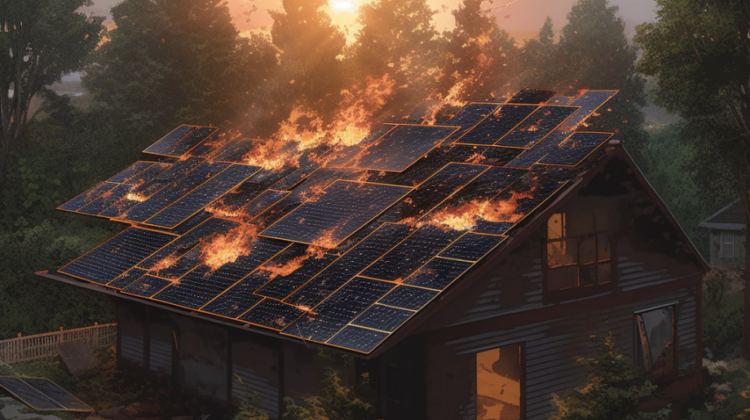
In recent years, solar panels have become a popular choice for renewable energy generation. They offer a cost-effective and environmentally friendly alternative to traditional fossil fuels. However, like any technology, solar panels have their risks and challenges. One of the main concerns is the potential for fire hazards associated with solar panels.
The fire risk from solar panels is relatively low compared to other energy sources. However, it is not something to be taken lightly. In recent years, several reports of solar panel fires have occurred in various parts of the world. These incidents highlight the importance of understanding the causes and risks of solar panel fires and taking appropriate precautions to prevent them.
One of the leading causes of solar panel fires is faulty installation or maintenance. When solar panels are not installed or maintained correctly, they can become a fire hazard. This is particularly true for installations not up to code or installed by a qualified professional. In addition, damage to the solar panels from natural elements such as hail, wind, or snow can also create a fire risk.
Another risk associated with solar panels is the potential for electrical arcing. Electrical arcing occurs when there is a break in the electrical circuit, causing a spark or arc to jump across the gap. This can happen if there is damage to the wiring or if the wiring is not installed correctly. If left unchecked, electrical arcing can cause a fire.
The type of solar panel also plays a role in the fire risk. Thin-film solar panels, for example, are more susceptible to fire than crystalline panels. This is because thin-film panels comprise several layers of material that can easily ignite and spread fire. In contrast, crystalline panels are made of a solid block of silicon that is less likely to catch fire.
Following proper installation and maintenance procedures is essential to reduce the risk of fire associated with solar panels. This includes ensuring that the installation is up to code and that all wiring is properly grounded and protected. Regular maintenance, including cleaning the panels and checking for damage, can also help to prevent fires.
In addition to proper installation and maintenance, other measures can be taken to reduce the risk of solar panel fires. These include installing fire-resistant materials around the panels, such as metal or concrete, to prevent the spread of fire. Installing a fire suppression system, such as a sprinkler system or fire extinguishers, can also help to contain a fire if one does occur.
It is also essential to have a plan in place in case of a solar panel fire. This includes having a clear evacuation plan and ensuring all building occupants know the program. Having a designated person responsible for monitoring the solar panels and reporting any issues or concerns is also a good idea.
Solar panels offer many benefits as a renewable energy source. However, like any technology, there are risks associated with their use. Fire hazards associated with solar panels can be mitigated by following proper installation and maintenance procedures, using fire-resistant materials, and having a plan in case of a fire. By taking these precautions, solar panel users can enjoy the benefits of renewable energy while minimizing the risks associated with their use.

Leave a Reply